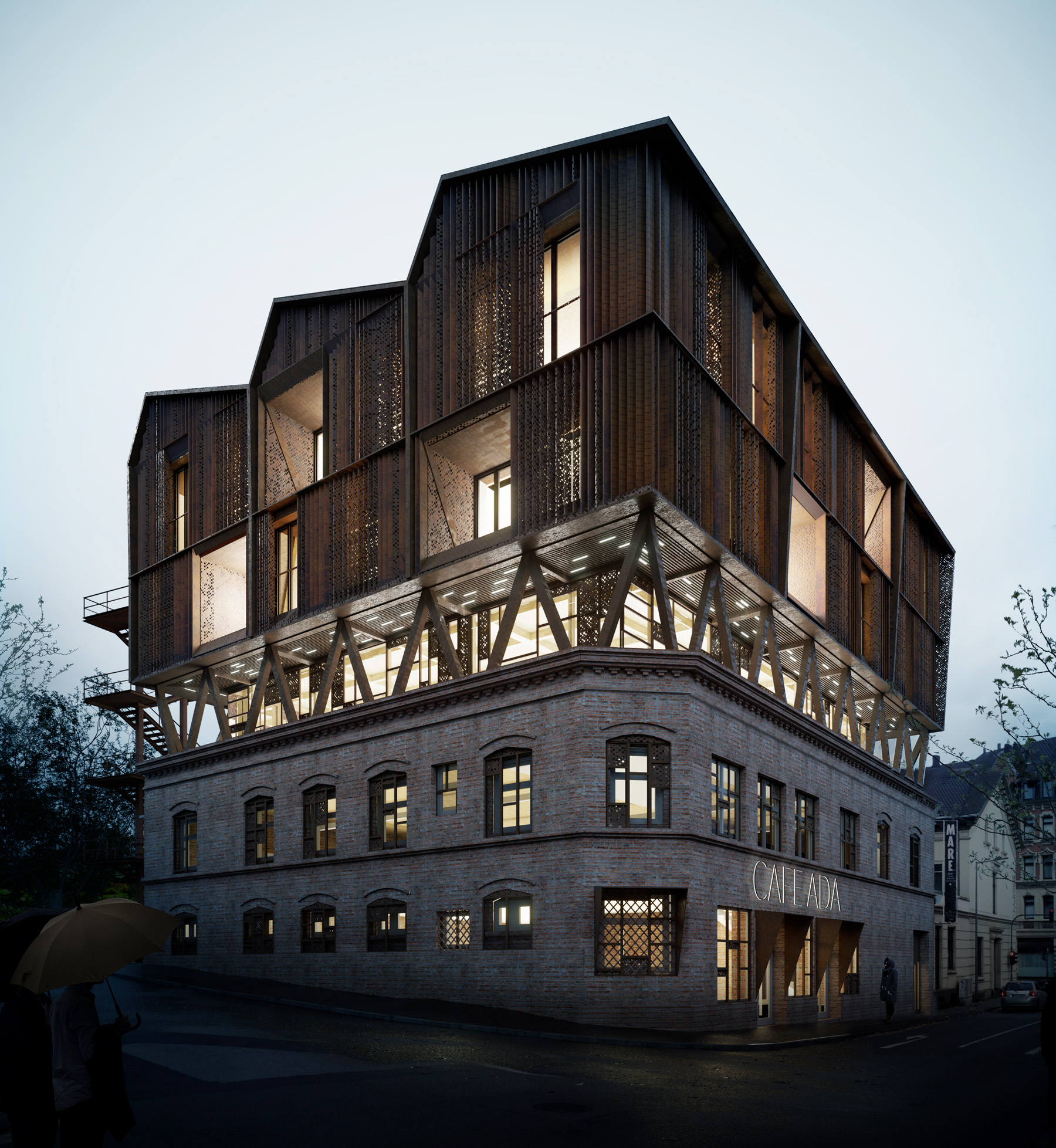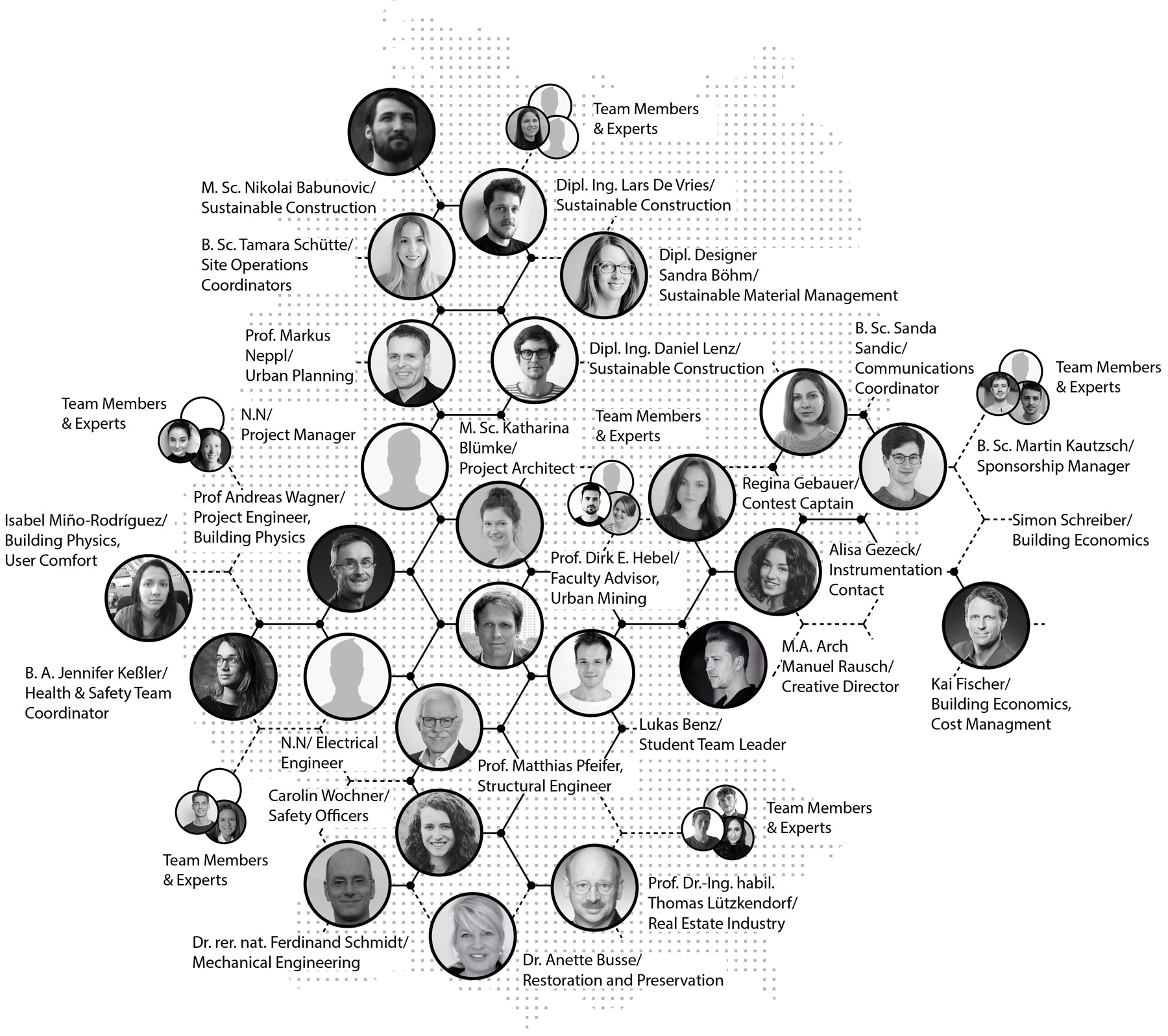RoofKIT
How can we create socio-economically fair housing without destroying our natural resources? And how can we create ecologically sensitive building structures that acknowledge the finite nature of natural material supplies and avoid any state of "waste", but understand the existing building stock as an urban material bank for the future? How can we develop alternative solar extraction systems as part of an urban mining theory, proposing paradigm-shifting innovations as the first of their kind in the world? And how can we deploy urban mobility systems as an integrative part of the immobile building sector?
The RoofKIT team from the Karlsruhe Institute of Technology (KIT) will address these pressing questions as part of the European Solar Decathlon competition by exploring an extraordinarily large land resource within our cities: Building roofs. By applying urban mining to the identification of new potential building sites in our cities and applying the concept also to the material and energy issue, the project will show that it is possible to integrate the building sector into a functioning circular economy system today, without distinguishing between "waste" and supply. The city of today will be the resource for the city of tomorrow. This requires a new understanding of building. We need to rethink all the constructional details to prepare our future buildings for such a change. It needs a new generational contract for both - society and young architects. RoofKIT will show that this is already possible today. We will present new construction systems, new materials that are just being introduced from research into an innovative industry, and we will show how newly developed solar energy harvesting systems will follow our faith: Sustainable architecture must look stunning!
Further information
RoofKIT
Web:www.roofkit.de
Instagram: ∂roofkit_
Facebook: ∂roofkit.com/
Solar Decathlon 2021
Web: https://sde21.eu

The implications of such a fundamental paradigm shift are undeniable. In the face of the global climate crisis, we must change the way we think, act and build architecturally. RoofKIT will be a demonstrator for a new generation of buildings that take their responsibilities seriously. It will demonstrate that social sustainability in the form of affordable, quality housing that interacts with the neighbourhood is a matter of good and informed design, that the use of solar energy will not just be an accessory but a mandatory part of every design process and mobility concept, and that resources derived from the urban mine can and will be woven into a synergistic, resilient design as they can be fully utilized in a future circular economy.
The Team: RoofKIT is a collaborative think tank that continues to grow over time, bringing in other individuals and organizations along the way. Founding members and groups are the Department of Architecture, KIT, the Department of Economics, KIT, the Department of Mechanical Engineering, KIT, the Ministry of Rural Areas and Consumer Protection Baden-Württemberg, Holzbau-Offensive BW, Stuttgart, 2hs Architekten und Ingenieur PartGmbB, Ebringen, Stahl + Weiß, Ingenieure, Freiburg, ip5 GmbH, Karlsruhe, Volkswohnung GmbH, Karlsruhe, Kaufmann Zimmerei, A-Reuthe, and innovative products developed by leading researchers in the field of solar technologies and also following the principle of urban mining.
"We want to change the world! Roughly speaking.", students of the KIT Department of Architecture.

About the Solar Decathlon
For a climate-friendly future, we need new, innovative ideas. For the first time in the history of the worldwide Solar Decathlon competitions, we are focusing on sustainable building and living in the city with the Solar Decathlon Europe 21 (SDE21) - breaking new ground. The decathlon, which will be held in Wuppertal, will focus on the renovation and further construction of existing buildings, where the greatest potential for the urban energy transition lies.
18 university teams from eleven countries are putting their visions of sustainable, energy-efficient and socially acceptable architecture into practice. Based on real existing city districts, they conceptualise, plan and build sustainable houses that make climate protection and energy transition tangible and tangible.
